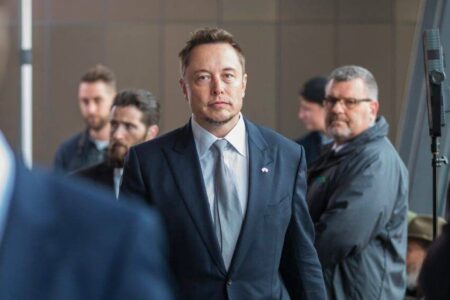Elon Musk has entered British politics by calling for a “new election in Britain” after a new wave of polling data revealed a sharp decline in support for the Labor Party.
A YouGov poll commissioned by The Times suggests that most voters view Sir Keir Starmer’s party as “incompetent”, “dishonest” and “unsuccessful”. Many participants expect that the Prime Minister will not meet the policy milestones he recently set.
In response to the poll, the Tesla and SpaceX entrepreneur took to Twitter, writing: “New elections should be called in Britain.” He also urged voters to support Nigel Farage’s UK Reform Party, tweeting: “Vote for reform. It’s the only hope.
The latest results follow a disappointing reaction to the October Budget, with only 21 per cent of respondents saying they trusted Labor on economic matters, compared to 24 per cent who preferred the Conservatives. Starmer used his New Year’s speech to describe 2025 as a “year of rebuilding” as he pledged to restore public services and boost national prosperity.
However, Labor has reportedly lost 33 of around 150 seats in contested assemblies since the last general election, with the Conservatives gaining 24 and the UK Reform Party gaining seven. A recent More in Common poll suggests Labor would lose 200 seats out of its 411-seat majority if a general election were held today. This would allow the UK Reform Party to leapfrog the Liberal Democrats and become the third-largest parliamentary party, gaining 72 seats – with several senior Cabinet figures, including Deputy Prime Minister Angela Rayner, expected to lose their seats.
Luke Traill, executive director of Joint UK More UK, stressed that while the results do not represent a direct forecast for the next election, they “confirm that the fragmentation of British politics we saw in the July election has only accelerated during Labour’s six months in power.” In his position. .
Farage’s UK Reform Party looks poised to secure its first seats in Wales, with notable successes also expected in parts of England such as South Yorkshire, North Nottinghamshire, Greater Manchester and Tyne and Wear. Polls show that the party ranks second in more than 200 electoral districts, which is another sign of the political fluctuations currently sweeping Britain.
